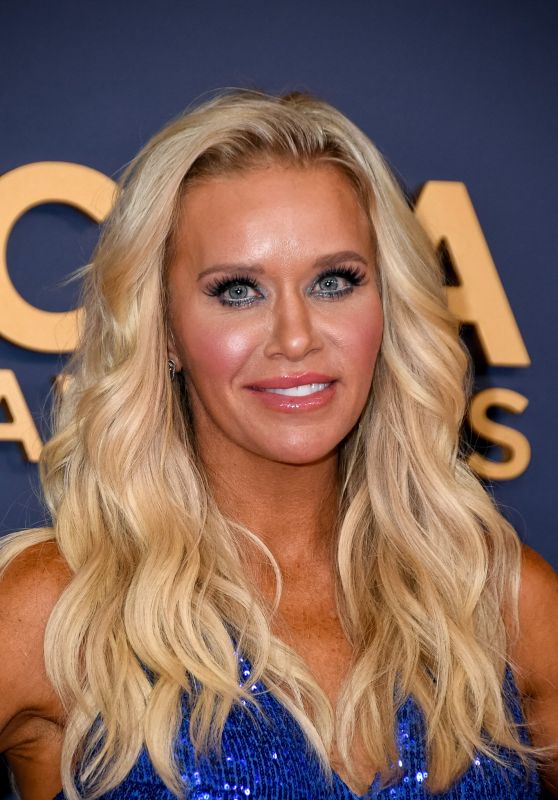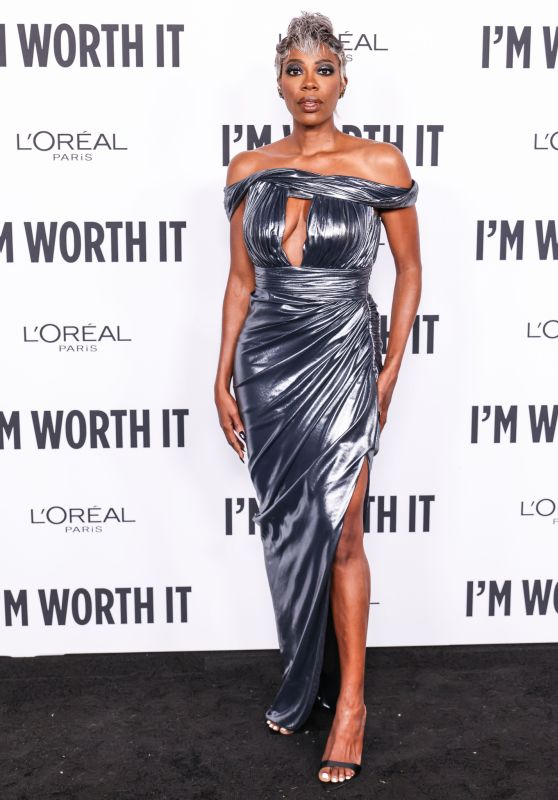
“What? There’s no Luther doc?,” asked award-winning documentarian Dawn Porter upon meeting with Sony Music to discuss which artists from their catalog deserved their own film. Anyone familiar with R&B icon Luther Vandross would be just as surprised, as his music remains prevalent two decades after his death, yet his personal life is forever shrouded by unanswered questions about his personal life. “He’s the most famous singer a lot of people don’t know,” said the director to IndieWire ahead of a screening of her new film “Luther: Never Too Much” at the Virginia Film Festival 2024 where it won the Audience Award for Documentary.


Though Porter had not come into said Sony meeting with an idea of who she specifically wanted to make a film about, the director of acclaimed projects like “Trapped,” “John Lewis: Good Trouble,” and “Deadlocked: How America Shaped the Supreme Court” — which all highlight the burdensome flaws with the American political system — knew she wanted to dedicate her time to something outside her comfort zone. “I had never done a music documentary before. I do a lot of political documentaries, and so I was just in the mood for something a little different. You want to stretch and grow,” she said. “I always work on a few different things at a time, so I didn’t want to work on anything that was too similar. The other project was a wrongful incarceration film, so those can get heavy.”
With Vandross and his immediate family having passed, the initial question was whether or not there would be enough resources to work with. The team that actually connected Porter to the estate included Trish D. Chetty and Ged Doherty, executives at Colin Firth’s production company Raindog Films. “They are the producers who really kind of got the family on board. They met with some of Luther’s estate members, and they worked on it for years to get it,” said the filmmaker. Turns out, there was plenty of rehearsal footage, liner notes, and more to make a project worthy of the visual medium. “Then Jamie [Foxx] came on board after they had done that. They were all in place before I got there. Then when I came on board, we finally went for it.”
With there being such a huge uptick in documentaries profiling different pivotal artists recently, what made “Luther: Never Too Much” different from the rest of the pack was, in part, focusing on the work that went into Vandross becoming such an admired figure among his peers. “Showing his intelligence, that was a big thing,” she said. “What I started to learn about him was that he was a composer, an arranger, and a producer, and produced Dionne Warwick, and Aretha Franklin, and sang backup for [David] Bowie, and ended up arranging Bowie’s first American album. Everybody I spoke to said he’s a vocal genius. I thought, that’s not how he’s portrayed. I think with a lot of Black artists, we act as if they’ve just come out of the womb singing, and then it’s this God-given natural talent as if there’s no work and intention. For me, I wanted to focus on that part of his skill, that just because you’re Black doesn’t mean that you can sing.”
 ‘Luther: Never Too Much’ director Dawn Porter accepts the Chronicler Award at the Virginia Film Festival 2024.Ézé Amos
‘Luther: Never Too Much’ director Dawn Porter accepts the Chronicler Award at the Virginia Film Festival 2024.Ézé AmosTo that end, Porter makes showing footage of Vandross performing a priority. But getting to the place “Luther: Never Too Much” does, where audiences at the film’s Sundance premiere were ready to get up and sing along, took some strategy. “I was very much aware that not all, but a lot of white audiences would not be familiar with him at all. Then a lot of Black audiences would have favorite songs. As a filmmaker, you’re thinking, ‘How do I serve everybody?’ The idea is in the first 35 minutes, we introduce you again. So by the time you get to ‘Never Too Much,’ which is a third into the movie, everybody’s caught up. Everybody’s like, ‘This is just a really talented person,’” said the director. “Then people kind of sink into the movie, and you see all these fun things. Then when you see him do the things he’s famous for, you know where they came from. The audience can appreciate the work, and the skill, and the intention behind what he’s doing. They laugh joyfully when he goes, ‘Woo, woo, woo,’ because they know that he created that. Now they’re in on the behind the scenes, and that’s really fun for a film to do. I don’t really think of it so much as a profile, as an exploration of this artist in this period of time, dropping into that period of time. What was he facing, and what are some of the surprises? Then also, why are we surprised?”
As one watches the film, it becomes apparent that there is an elephant in the room when it comes to the singer’s personal life. Though Vandross was forced to be all too public about his struggles concerning weight, “Luther: Never Too Much” astutely tackles the mystery of the singer’s sexuality, and why those who were close to him are still resistant toward providing clarity on the subject.
“A very big thing was really how the media treated him. They couldn’t put him in a box, so it was this heavy man who sang about love, and they didn’t see any partner, and they didn’t know what to do with that. The questions he would get about his weight were so invasive. ‘How much do you weigh?’ Like, ‘What?’ If you asked me today, how much do I weigh, I’d be like, ‘Fuck you. What do you mean, how much do I weigh?’ We could have done a half an hour of those questions of people making fun of him to his face,” said Porter. “I wanted to kind of show that, what does fame do to people, and how much do you have to sacrifice in order to achieve your dream of just being a performance artist?”
 ‘Luther: Never Too Much’Alberto Tolot courtesy of Sony Music
‘Luther: Never Too Much’Alberto Tolot courtesy of Sony MusicShe added, “We don’t do a good job with giving people who are famous any kind of space, and particularly in our social media world. What Luther said, which really resonated with me, is, ‘What I owe my fans is my talent, my best effort in music, and I’m going to keep my personal life personal.’ I actually think about that in terms of pro-choice, being pro-choice, and what ‘My body, my self’ means, it’s my body. I don’t want you commenting on my body. I don’t want you commenting on my personal life. I am putting myself out there in a particular way. I think it was an interesting exercise to see him try and draw that boundary and really not waver from it. I thought, because we are so out and proud, and I’m like, ‘What if somebody’s just quiet? That doesn’t mean that they are self-hating, it just means they’re quiet.’”
Despite us being in a time where audiences want definitive answers to invasive questions from their stars, the approach Porter took toward portraying Vandross’ personal life seems to have paid off. “It was definitely the thing I was worried the most about, because you need to be true, but you also need to respect your character,” she said. “Audiences have reacted very well to ‘Just let him do what he wants to do.’”
Still, the hardest aspect of the film may be that Vandross died before he could see how his fans were ready and willing to embrace him for all he was. “I am so curious, I’m like, ‘Who would he be mentoring? How would his music have evolved? What would he be doing now?,’” asked Porter. “He certainly knew how many fans he had. Some of the biggest names in music were very clear about how admired he was.” Foxx, for example, who serves as both a producer on the film and one of the most entertaining talking heads within a documentary in recent memory, came on board to the project because, in the director’s eyes, “he really understood what it’s like for an artist to try and not be pigeonholed, and to do different things.”
Ultimately, “the Luther story for me was he was everywhere, and he was in so many places that we weren’t acknowledging or understanding that he was everywhere. He was largely popular with Black audiences, but he was everywhere. He was on ‘Sesame Street,’ he was in all your favorite commercials, and he was a backup singer to all these singers,” said Porter. “He was talented enough to have it all. He had to work really hard to really get appreciated for what he did. I hope that this film helps do that now even more.”
“Luther: Never Too Much” is now in select theaters and will premiere on CNN on January 1, 2025 at 8 p.m. ET.




















 English (US) ·
English (US) ·